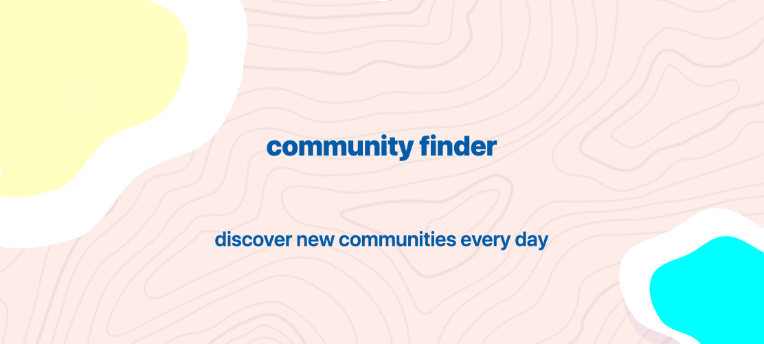I asked Anna Grigoryan, the writer behind the Engineering Growth newsletter to share 7 communities that will give your SaaS product a boost. These communities will help you during the product development and launch stages and will provide much needed peer and community support.
Back in the day, having a technical cofounder, or the “tech person” on any startup team was a must-have. VCs wouldn’t take you seriously without one. You literally couldn’t have a product if you didn’t have a software engineer on your team. Many startups failed because they were not fast enough on the iteration cycle and couldn’t respond to their customers’ demands on time with the right solutions. Well, we’re in 2020 now, and aside the year being a total mess, it’s also the blooming spring for the no-code movement. With SaaS tools like Airtable, Coda, Zapier, Webflow, Memberstack, you can build a full-blown two-sided marketplace without having to think about authorization, hosting and the gist like that.
Makerpad is a paid community for people who want to learn about no code stack. They have a great community and love to spice up the day to day activities with events like hackathons, online boot camps and all. Also, you can hire no-code developers. A truly all-in-one experience for getting to know the no-code side of engineering.
They also have a no-code VC, which is investing in early-stage startups who use no-code tools to bootstrap. So you have all the shots in your hands.
Now that with the use of no-code toolset, you can build your platform on your own, you need to understand what to build. How to determine your MVP scope? How to define your iteration cycles? How to manage the customers’ feedback and add new features? These are very simple but, at the same time, tough questions, both for the first time founders and even seasoned experts. Product management and product-centric mindset are here to help you determine the answers to those questions.
If there was one place I would recommend to take a membership, it would be the ProductmanagementHQ. You can get a lot of valuable connections with the product managers of successful startups, participate in the AMA sessions, get your questions answered live, and without any additional “just get to know your audience” stuff.
Peer support, seeking recommendations, finding answers to questions, learning new growth tactics are stuff SaaS founders do every day.
SaaS Boss is a Facebook group that brings SaaS founders and consultants together. You will discuss team management, company growth, and related topics and maybe promote your own product as well when relevant! You will be among the first ones to know about an upcoming live Q&A with a SaaS expert or when your peers share their experience, struggles, success stories.
Ask questions, write comments, talk about daily challenges as a SaaS founder, and follow trends. It’s a place where people give and take and the process contributes to everyone’s growth.
Okay, so you built your product, you have the action plan for your future changes and features. Great! Now the hardest part, try to sell it.
How many email marketing services do you know? Mailchimp and Convertkit can come to mind. However, last time I checked (and yes, I sometimes out of sheer curiosity do these kinds of masochistic things 🙂 ) there were 160+ email marketing services. 160 Carl! They all have relatively the same features distributed over 2 or 3 pricing plans (the limit for email sending, scheduling emails, email archive, an API that claims that the emails are not going to spam). Each of them is solving a problem for a specific industry or niche..
Well, how do you stand out in the 160 competitors? There are many ways, and Demand curve is here to help you determine the zillions of options you have in your hands. They are, I believe, the most prominent marketing community out there. You can register and buy one of their courses, which will grant you access to the community automatically, or sign up for a waiting list, in this case, you’ll get in maybe in a week or two. From my experience, their review of my landing pages and sign up forms from their members were hands down the best one yet.
I’ve been working freelance for two years now, and also I’ve been doing solo projects for 6 months. This kind of lifestyle has great days and low days. As a first time founder, especially if you are flying solo like me, you can have those moments when you feel incredibly isolated and lonely. It doesn’t mean you don’t have a supportive family and friends, it’s just sometimes it’s tough to do things alone.
Leapers is the community I didn’t know I needed until I found it on Twitter. Their primary focus is to help freelancers and solo founders to keep in check with their mental health, support each other and be helpful during those lonely times. This is a place where you can come and rant about your shady customer or wrong sales funnel, and here you can also find great collaboration opportunities.
Being solo is possible, and I’m here to tell you that you definitely can do anything you want alone, but it doesn’t have to be sad and lonely. Check out their mental health guides, and you’ll see why I love them.
Someone described this community as “Twitter meets ProductHunt.” There’s no better way to put it. Created and maintained by the ProductHunt team, this platform is here to open the tool- stacks of people. Do you want to know which CRM is used by Producthunt founder, want to know why people don’t like a specific product? How are they using the to-do apps? What books about productivity are the best? Do you want to know other people’s stack?
Founders that are building something new must visit this platform to see the “ugly truth” of how people are using the most popular products. If you check out the Airtable page, you can see the variety of opinions and use cases. What a place to collect information about your users’ habits?
Here are just a few ways to use Yourstack:
- Do competitor research to see how their customers are using them;
- Do market research to find all the possible products that are being used in your industry;
- Register your product and stack it;
- Add pro tips to educate how your product can be used.
Worth the try, for sure!
This community is yet another one where you can find support. This time it’s for full-time independent makers. Here you can register your product and build it in public. This is a place to display your tasks, your progress and lows. Here are the most proactive people who are genuinely helping with feedback and support. Something is fascinating about building your product in front of 500+ founders, and it’s a truly transformative experience to attempt something like this.
Hope these 6 communities will be helpful to all indie hackers out there! Check out more about what my friend Anna at Engineering Growth is doing and subscribe to her newsletter here.


 I consumed 54 books in 2019: here are the Top 10 I’d highly recommend
I consumed 54 books in 2019: here are the Top 10 I’d highly recommend